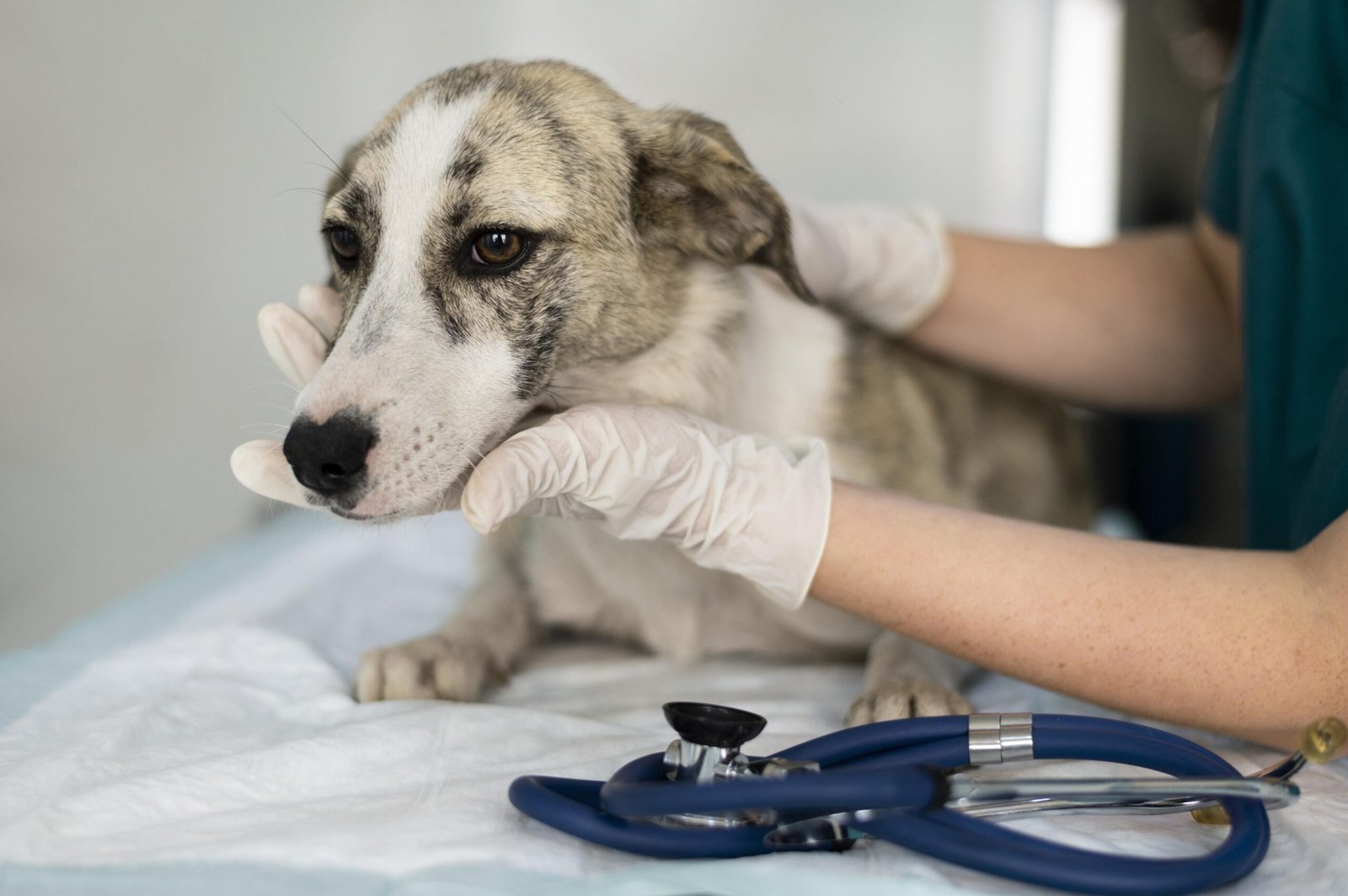
Cardiovascular health plays a crucial role in the overall well-being of our pets, particularly dogs and cats. Just like humans, pets are vulnerable to a variety of heart conditions that can affect their quality of life and longevity. Unfortunately, many cardiovascular issues in pets go unnoticed, as they often develop slowly and manifest in subtle signs that pet owners might overlook. Early detection and intervention are essential for managing these conditions effectively. In this article, we will explore some of the most common cardiovascular issues in dogs and cats, their symptoms, risk factors, and the best practices for prevention and treatment.
What is Cardiovascular Disease in Pets?
Cardiovascular disease (CVD) refers to a range of heart and blood vessel problems that can affect both dogs and cats. These issues can include anything from heart murmurs to more serious conditions like congestive heart failure (CHF) and cardiomyopathy. Cardiovascular disease in pets is often chronic, meaning that it can worsen over time if not properly managed.
There are several different types of cardiovascular conditions that affect dogs and cats, and understanding the specific disease and its symptoms is critical for effective treatment. Let’s take a look at the most common cardiovascular conditions seen in pets.
Common Cardiovascular Conditions in Dogs and Cats
Heart Murmurs: Causes, Signs, and Treatment Options
A heart murmur is an abnormal sound heard during a heartbeat, often detected by a veterinarian during a routine check-up. Heart murmurs can be caused by a variety of factors, such as valve abnormalities, blood flow irregularities, or congenital heart defects. While a heart murmur itself isn’t a disease, it may indicate an underlying heart problem.
Causes:
- Valvular disease: Often seen in older dogs, particularly small breeds.
- Congenital heart defects: More common in puppies and kittens.
- Heartworm disease: Can lead to murmurs due to damaged heart valves.
Signs:
- A heart murmur is often detected during a physical examination, but it doesn’t usually cause immediate symptoms. However, if left untreated, it can progress into a more serious condition like congestive heart failure.
Treatment:
Treatment for a heart murmur depends on its severity and the underlying cause. If the murmur is mild, it may not require any treatment, but regular monitoring is necessary. If an underlying condition is causing the murmur, targeted treatments such as medications or surgery might be required.
Congestive Heart Failure: Symptoms, Stages, and Management
Congestive heart failure (CHF) is a condition where the heart is unable to pump blood efficiently, leading to fluid buildup in the lungs and other parts of the body. It’s a progressive disease that can be particularly dangerous if not diagnosed early.
Symptoms:
- Coughing: Often worse at night or after exercise.
- Lethargy: Decreased energy and exercise tolerance.
- Rapid breathing or panting: Especially noticeable at rest.
- Swelling in the abdomen or legs: Caused by fluid retention.
Stages:
Congestive heart failure is divided into stages, ranging from early, mild signs to severe, life-threatening symptoms. The stages depend on the heart’s ability to compensate for the loss of function and the severity of the condition.
Management:
Treatment typically involves medications to manage symptoms, such as diuretics to reduce fluid buildup, ACE inhibitors to improve heart function, and possibly other heart medications. Regular follow-up visits with the vet are important to monitor progress and adjust treatment plans.
Dilated Cardiomyopathy (DCM): A Common Heart Condition in Larger Dog Breeds
Dilated cardiomyopathy (DCM) is a disease where the heart becomes enlarged and weakened, reducing its ability to pump blood effectively. This condition is most commonly seen in larger dog breeds such as Doberman Pinschers, Boxers, and Great Danes.
Symptoms:
- Exercise intolerance: Difficulty in physical activity or play.
- Fainting or collapse: Caused by reduced blood flow.
- Coughing or difficulty breathing: Due to fluid buildup in the lungs.
- Heart arrhythmias: Abnormal heart rhythms that can be life-threatening.
Treatment:
While DCM cannot be cured, treatment focuses on managing symptoms and slowing disease progression. Medications such as beta-blockers, ACE inhibitors, and diuretics are commonly prescribed. In severe cases, surgery or implantable devices like pacemakers may be needed.
Hypertrophic Cardiomyopathy (HCM): Common in Cats and Its Impact on Their Heart
Hypertrophic cardiomyopathy (HCM) is the most common heart disease in cats, particularly affecting middle-aged to older cats. This condition involves the thickening of the heart muscle, which reduces the heart’s ability to pump blood efficiently.
Symptoms:
- Rapid breathing: Especially at rest.
- Lethargy: Reduced activity levels.
- Loss of appetite: Decreased interest in food.
- Sudden collapse or fainting: Due to reduced blood flow.
Treatment:
HCM is often managed with medications to improve heart function and reduce symptoms. These may include beta-blockers, calcium channel blockers, and ACE inhibitors. Regular veterinary check-ups are crucial for monitoring the condition.
Arrhythmias: Types, Symptoms, and Risks
Arrhythmias are irregular heartbeats that can affect both dogs and cats. These abnormal rhythms can occur when the heart’s electrical signals are disrupted, leading to an irregular heart rate.
Types:
- Tachycardia: Abnormally fast heart rate.
- Bradycardia: Abnormally slow heart rate.
- Atrial fibrillation: A type of irregular rhythm that can lead to blood clots and other complications.
Symptoms:
- Weakness or fainting episodes.
- Increased heart rate or panting.
- Decreased exercise tolerance.
Risks:
If left untreated, arrhythmias can lead to heart failure, stroke, or even sudden death. Treatment may include medications to regulate the heart rate or, in severe cases, a pacemaker implantation.
Signs Your Pet Might Have a Cardiovascular Problem
Recognizing the signs of cardiovascular issues in your pet is crucial for early intervention. Some common symptoms to watch for include:
- Coughing: Especially after exercise or at night.
- Lethargy: Decreased interest in activities and play.
- Rapid breathing: Panting excessively or labored breathing.
- Fainting or collapsing: Sudden loss of consciousness or energy.
If you notice any of these symptoms, it’s important to seek veterinary care immediately. Regular veterinary check-ups are essential for early detection, as many cardiovascular issues can develop gradually.
Risk Factors for Cardiovascular Disease in Pets
Several factors can increase the risk of cardiovascular disease in pets, including:
- Age: Older pets are more likely to develop heart conditions.
- Breed: Certain breeds are genetically predisposed to heart disease, such as Doberman Pinschers (DCM) and Maine Coon cats (HCM).
- Obesity: Overweight pets are at higher risk for developing heart disease.
- Lifestyle factors: Lack of exercise and poor diet can contribute to heart problems.
How to Prevent Cardiovascular Problems in Your Pets
Prevention is always better than treatment, and there are several steps you can take to ensure your pet’s heart remains healthy:
- Balanced diet: Provide your pet with a nutritious, heart-healthy diet.
- Regular exercise: Keep your pet active with age-appropriate activities.
- Routine vet check-ups: Regular check-ups allow for early detection and management of heart issues.
- Weight management: Ensure your pet maintains a healthy weight to reduce strain on their heart.
Treatment and Management of Cardiovascular Issues
Treatment for cardiovascular issues depends on the specific condition and its severity. Common treatment options include:
- Medications: These may include diuretics, ACE inhibitors, beta-blockers, and anti-arrhythmic drugs.
- الجراحة: In some cases, surgery may be required to repair damaged heart valves or correct congenital defects.
- Lifestyle changes: Diet, exercise, and weight management are key components in managing heart disease.
If your pet is diagnosed with a heart condition, consulting with a veterinary cardiologist may be necessary for specialized care.
Conclusion
Cardiovascular issues in dogs and cats are not uncommon, and early detection is crucial for effective management. Regular veterinary check-ups, a healthy diet, and appropriate exercise can help maintain your pet’s heart health. If you notice any signs of heart disease, such as coughing, lethargy, or rapid breathing, it’s essential to seek veterinary care immediately. By staying vigilant and proactive, you can ensure your pet enjoys a long and healthy life.
FAQs
- What are the early signs of heart disease in pets?
Common early signs of heart disease in pets include coughing, lethargy, rapid breathing, and fainting. If you notice any of these, it’s important to seek veterinary care promptly. - How can I prevent heart disease in my pet?
To prevent heart disease, ensure your pet maintains a balanced diet, regular exercise, and a healthy weight. Regular vet check-ups are also important for early detection. - What is a heart murmur in pets?
A heart murmur is an abnormal sound heard during a heartbeat, often indicating an underlying heart condition. It’s important to have it evaluated by a vet. - Is congestive heart failure treatable in pets?
While congestive heart failure is a chronic condition, it can be managed with medications, lifestyle changes, and regular vet check-ups. - Which dog breeds are prone to cardiovascular problems?
Larger dog breeds like Doberman Pinschers, Boxers, and Great Danes are more likely to develop conditions like dilated cardiomyopathy (DCM). - Can arrhythmias be treated in pets?
Yes, arrhythmias can be treated with medications or, in severe cases, a pacemaker to regulate the heart’s rhythm.

